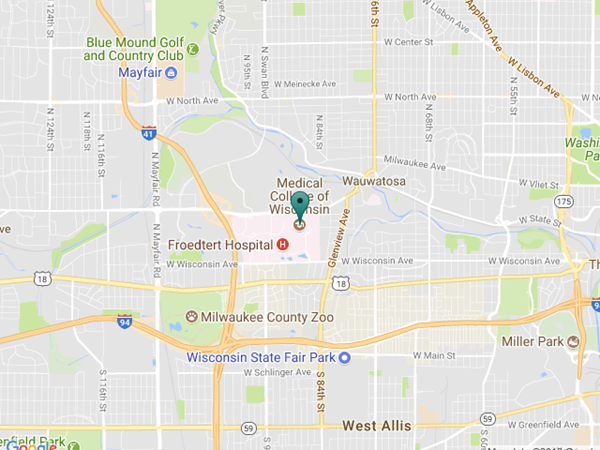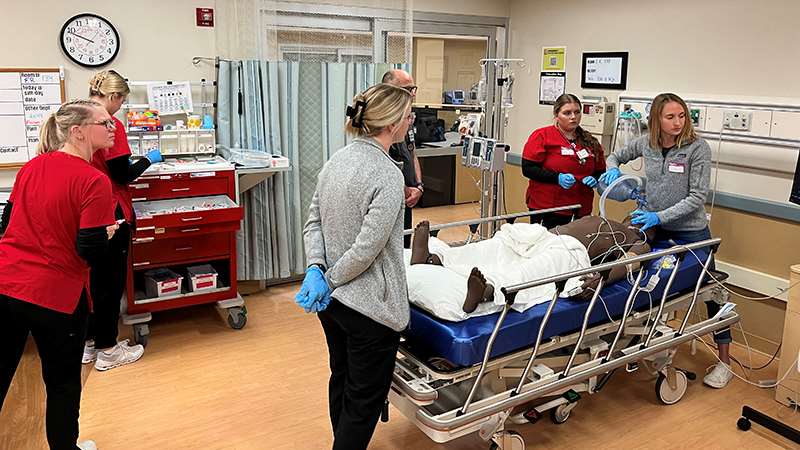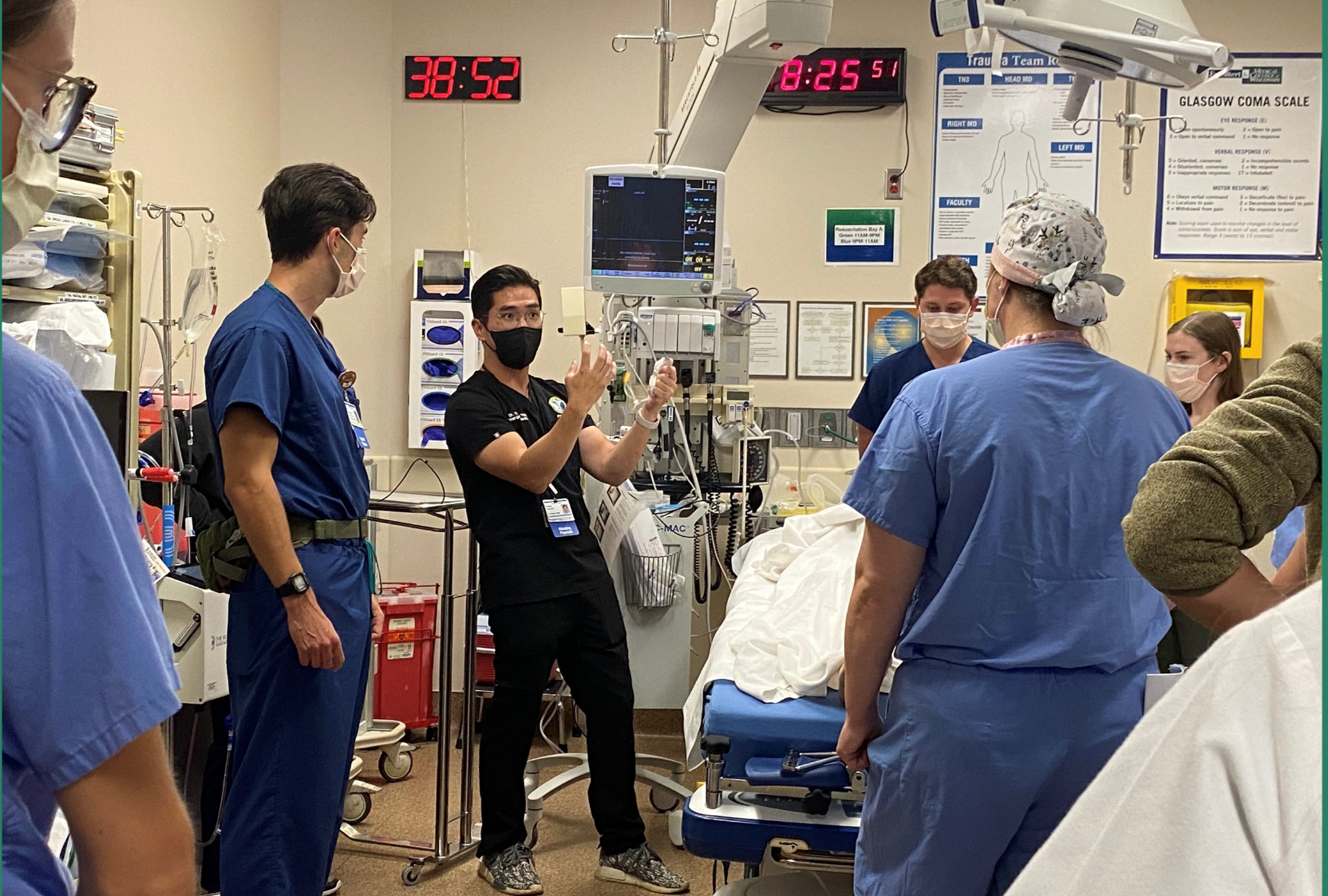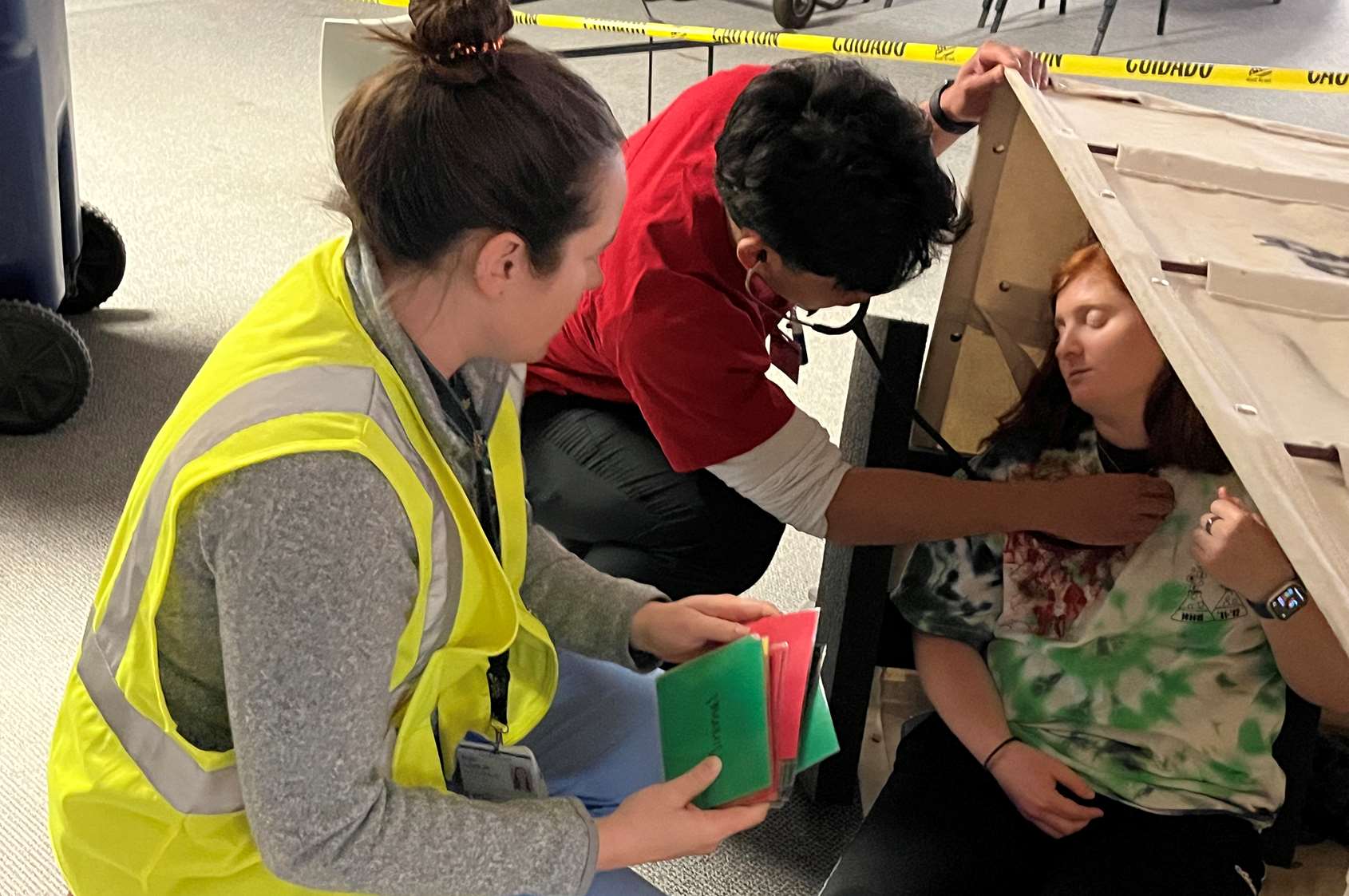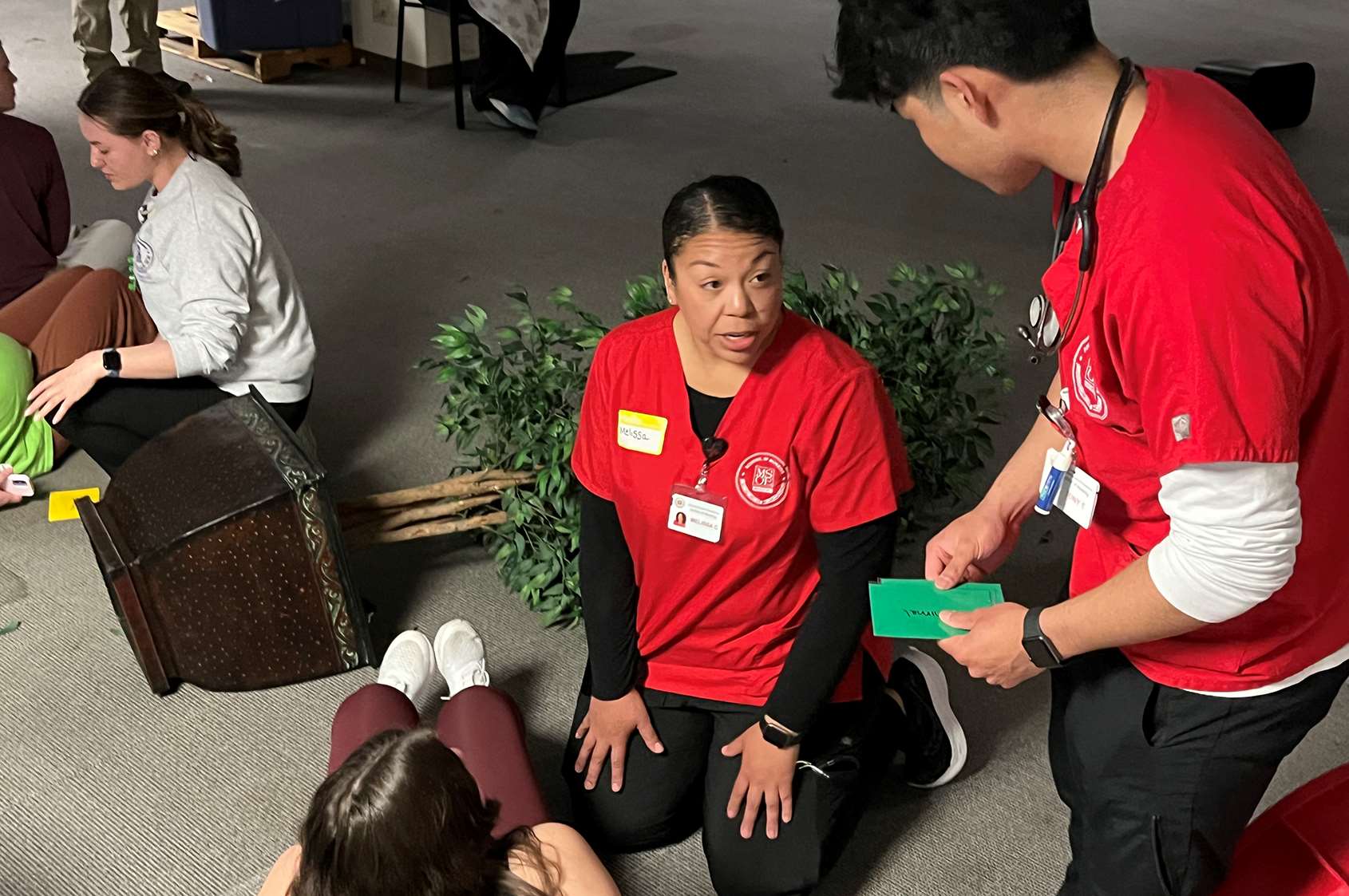MCW Simulation Fellowship Program
Are you...
- a dedicated educator with a passion for innovation?
- a critical thinker who enjoys tackling complex challenges?
- an effective communicator with a collaborative spirit?
Our one-year Simulation Fellowship offers a unique opportunity take your teaching to the next level.
Accreditation status: We are currently in application review by the Society for Academic Emergency Medicine (SAEM).
Simulation Fellowship Program Facets
Education and Training
Our fellowship program is about learning from the best and translating those teachings to make a real impact. You will:
— Deepen your understanding of adult learning theory and debriefing techniques.
- Our Simulation Fellowship delves into the fascinating world of adult learning theory, equipping you to create engaging and effective learning experiences.
- You'll master the DASH framework, a powerful tool for debriefing simulations that maximizes participant learning and skill development.
— Gain hands-on experience developing and delivering simulation experiences.
Our Simulation Fellowship isn't just about theory – it's about action. You'll gain invaluable hands-on experience in developing and delivering simulations across the entire learning spectrum:
- Undergraduate Medical Education (UME): Foster foundational skills in medical students.
- Graduate Medical Education (GME): Refine the decision-making and clinical expertise of residents and fellows.
- Continuing Medical Education (CME): Equip practicing physicians with the latest knowledge and procedures.
- Hospital Staff Training: Enhance teamwork, communication, and collaboration across all hospital departments using multidisciplinary, interprofessional, in-situ simulations.
System Integration
Our fellowship program is beyond education and training. Our team is proud to train you to become a leader in patient safety and quality.
We actively participate in organizational quality initiatives at a micro and macro level and measure simulation outcomes to drive measurable improvements in patient care. For example, we use simulation to identify and address patient safety risks in the operating room, leading to a reduction in complications.
- You will gain experience and information in human factors engineering and systemic approaches to solve safety and quality concerns.
- You will learn to develop and deliver impactful reports that inform quality improvement initiatives.
Some examples of hospital-wide system integration include:
- CIU Simulation: Simulation was conducted prior to CIU unit opening to identify latent safety threats with medical and behavioral emergencies with psychiatrists, unit nurses, security, medical emergency teams
- GI/GU Simulation: Simulation was conducted prior to the unit opening regarding latent safety threats with medical emergencies with physicians, unit nurses, medical emergency teams
- Design Simulation: Simulation was conducted for the new building room design regarding fall, medical cases, utilization of tools with the chief patient safety and quality executives to report to construction company for buildout
Scholarship and Research
Our team is committed to help you make a lasting impact on healthcare with our focus on education in simulation scholarship and research.
You will be able to participate in projects that are of interest to you and your career goals. For example, are you interested in how to leverage AI in simulation education? Are you interested in the effectiveness of simulation in surgical communication?
You will be fully supported for your dedication to scholarship success – whether it's mentorship opportunities, travel for conferences, IRB application, QI/QA Process, grant application and management, or access to cutting-edge resources at the simulation center.
The Medical College of Wisconsin is known for its presentations at local, regional, national and international conferences and publications in top-tier journals. We invite you to be a part of the community that is motivated and successful at delivering research and transforming healthcare delivery.
Administration
Our team will prepare you to be a leader in medical simulation. We are committed to providing you experience in micro-level management (team) or macro-level management (simulation center).
You will be able to observe daily and weekly operation of program and center management. This will include effectively allocating monetary values to resources to optimize program effectiveness and to ensure alignment with MCW and the hospital system’s mission.
For example, as a medical director you will understand the workflow of team management, budget creation/review, HR management, and simulation center management.
How to Apply
Interested applicants should submit the following to jhinze@mcw.edu:
- Curriculum vitae (CV) or resume
- One-page letter of intent
- Three (3) letters of recommendation (one from current program director)
We review applications and notify applicants of decisions on a rolling basis.
Submission Deadline: November 1 (preferred, but flexible based on contingency)
Start Date: July 1 (preferred, but flexible based on contingency)
Simulation Training Opportunities
Reasons to live in Milwaukee
Meet Our Team

Thomas Yang, MD, MEdHP, MS
Assistant Professor; Director, Simulation; Medical Director, Froedtert Hospital Simulation Center
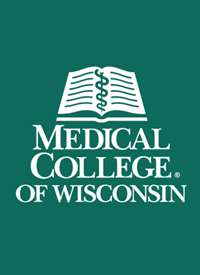
Lacie Bailey, MD
Assistant Professor
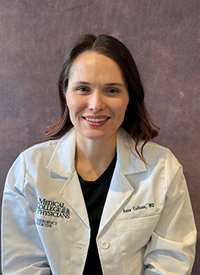
Anna Culhane, MD
Assistant Professor
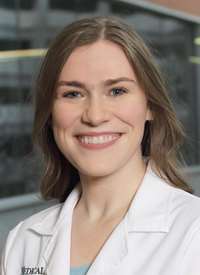
Maureen E. Davis, MD
Assistant Professor; UME Simulation Lead
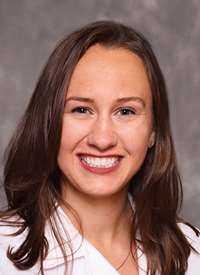
Elyse Hartleben, MD
Assistant Professor; Emergency Medicine Physician Lead for Scheduling; Assistant Medical Director, West Bend Emergency Department
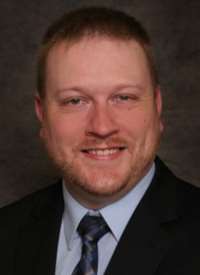
Matt Laudon, MD
Assistant Professor
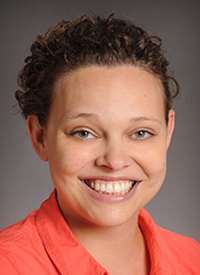
Jean Pearce, MD, MS
Associate Professor of Pediatrics; Medical Director Children’s Wisconsin Emergency Department Trauma Center
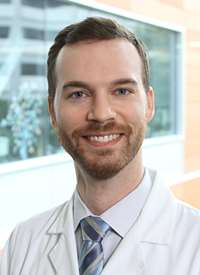
Michael Rentz, MD
Assistant Professor
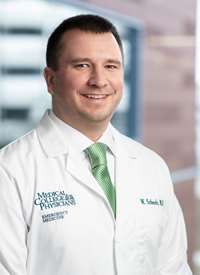
Bill Scheels, MD
Assistant Professor; Course Director, Ultrasound Elective

Ryan Scheper, MD
Associate Professor of Pediatrics; Associate Medical Director
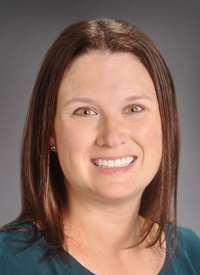
Abigail Schuh, MD, MMHPE
Associate Professor of Pediatrics; Director of Education, Section of Pediatric Emergency Medicine; Director, Pediatric Emergency Medicine Fellowship
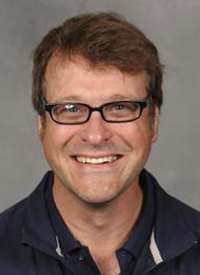
Mike Uihlein, MD, CAQ Sports Medicine
Assistant Professor
Contact Us
Questions? We would love to hear from you.
Mailing Address/Physical Location
Department of Emergency Medicine
Medical College of Wisconsin
Hub for Collaborative Medicine
8701 Watertown Plank Rd.
Milwaukee, WI 53226
Fellowship Coordinator
Janice Hinze
_emfellowships@mcw.edu
Administrative Office
(414) 955-6450
(414) 955-0082 (fax)
